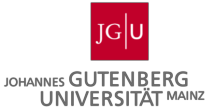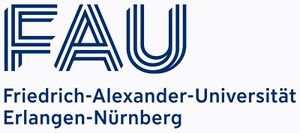Academic actors
The leading institutions are Max Planck Institute for Chemical Energy Conversion (MPI CEC) and the Karlsruhe Institute of Technology (KIT). The Johannes Gutenberg University Mainz (JGU), the Technische Universität Darmstadt (TUD), the Friedrich-Alexander-Universität Erlangen-Nürnberg (FAU), and the Rheinland-Pfälzische Technische Universität (RPTU), as well as non-university research institutions, round off the expertise in the field of electrosynthesis research. In ETOS, the complementary core competencies of the players are optimally bundled in order to establish the rapid electrification of synthesis processes across the various scaling sizes. Within ETOS, the academic players focus on frontline topics that enable disruptive applications, on the one hand, and prepare the field technologically for the implementation phases, on the other.
Max Planck Institute for Chemical Energy Conversion
The Department of Electrosynthesis at Max Planck Institute for Chemical Energy Conversion covers central methodological competencies and relevant know-how in the field of electroorganic synthesis. Reaction optimization in electrosynthesis using modern algorithms represents the backbone of the extensive research activities. Another focus is the development of flow electrolyzers with small electrode spacings up to the semi-technical kilogram scale.
Karlsruhe Institute of Technology
The Karlsruhe Institute of Technology brings its engineering and process technology expertise in the consortium. The competencies range from model-based analysis and optimization of electrodes and cells to structured reactors, process design and operation in Power-to-X infrastructures to catalyst synthesis, process upscaling and evaluation, as well as large-scale plant operation. AI experts with their database development for molecule screening in organic synthesis are also involved.
Johannes Gutenberg University Mainz
The Department of Chemistry at Johannes Gutenberg University Mainz covers central methods in the field of "Natural Product and Drug Synthesis" and "Analytical Chemistry".
Technical University of Darmstadt
TU Darmstadt stands for excellent and relevant science. The research field Energy and Environment (E+E) at TU Darmstadt sees itself as the research incubator for solutions to energy and environmental problems, because the competencies from engineering, natural sciences, humanities and social sciences are networked and concrete solutions for practicability are provided.
Friedrich-Alexander-University Erlangen-Nuremberg
FAU Erlangen-Nuremberg and the region is an internationally recognized research and innovation hub for electrochemical processes and makes a significant contribution to research into electrocatalysts and electrochemical processes. Technology is being developed here for the future chemical industry, which relies on sustainable raw materials and sustainable energy input.
Rhineland-Palatinate University of Technology
The RPTU is characterized by close links between chemistry and process engineering. It contributes expertise in the development of new methods for the physical-chemical modeling of electrolyte solutions in process engineering processes and new purification processes for poorly specified mixtures.
Fraunhofer Institute for Microtechnology and Microsystems
In its Chemistry research and business unit, Fraunhofer IMM focuses on the improvement and sustainable design of chemical production processes based on (micro)structured reactors. For over 20 years, the IMM has dedicated itself to microstructured electrochemical reactors and uses them for the development of continuous syntheses.






